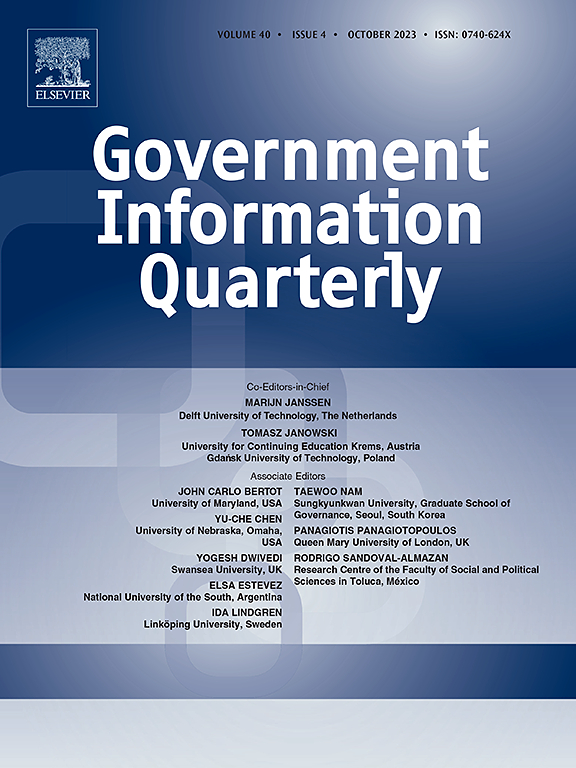监管人工智能的生成:技术中立监管框架的局限性。意大利干预 ChatGPT 的启示
IF 10
1区 管理学
Q1 INFORMATION SCIENCE & LIBRARY SCIENCE
引用次数: 0
摘要
现有文献主要集中在人工智能监管的法律、伦理、治理、政治和社会经济方面,往往将技术层面置于边缘,反映了技术中立的人工智能监管框架的设计、使用和发展。生成式人工智能模型的出现和广泛使用,对旨在实施有效监管干预的公共监管机构提出了新的挑战。生成式人工智能具有独特的技术特性,需要在部署相关监管措施之前对其进行全面了解。本文以最近意大利暂停 ChatGPT 的案例为重点,探讨了生成式人工智能的特定技术结构对技术中立监管的有效性的影响。通过利用探索性案例研究的结果,本文有助于理解生成式人工智能的特定技术特征与技术中立监管框架的有效性之间的紧张关系。本文认为,在这种矛盾得到有效解决之前,公共监管干预很可能无法实现其预期目标,从而为实践提供了相关启示。本文章由计算机程序翻译,如有差异,请以英文原文为准。
Regulating generative AI: The limits of technology-neutral regulatory frameworks. Insights from Italy's intervention on ChatGPT
Existing literature has predominantly concentrated on the legal, ethical, governance, political, and socioeconomic aspects of AI regulation, often relegating the technological dimension to the periphery, reflecting the design, use, and development of AI regulatory frameworks that are technology-neutral. The emergence and widespread use of generative AI models present new challenges for public regulators aiming at implementing effective regulatory interventions. Generative AI operates on distinctive technological properties that require a comprehensive understanding prior to the deployment of pertinent regulation. This paper focuses on the recent case of the suspension of ChatGPT in Italy to explore the impact the specific technological fabric of generative AI has on the effectiveness of technology-neutral regulation. By drawing on the findings of an exploratory case study, this paper contributes to the understanding of the tensions between the specific technological features of generative AI and the effectiveness of a technology-neutral regulatory framework. The paper offers relevant implications to practice arguing that until this tension is effectively addressed, public regulatory interventions are likely to underachieve their intended objectives.
求助全文
通过发布文献求助,成功后即可免费获取论文全文。
去求助
来源期刊

Government Information Quarterly
INFORMATION SCIENCE & LIBRARY SCIENCE-
CiteScore
15.70
自引率
16.70%
发文量
106
期刊介绍:
Government Information Quarterly (GIQ) delves into the convergence of policy, information technology, government, and the public. It explores the impact of policies on government information flows, the role of technology in innovative government services, and the dynamic between citizens and governing bodies in the digital age. GIQ serves as a premier journal, disseminating high-quality research and insights that bridge the realms of policy, information technology, government, and public engagement.
 求助内容:
求助内容: 应助结果提醒方式:
应助结果提醒方式:


